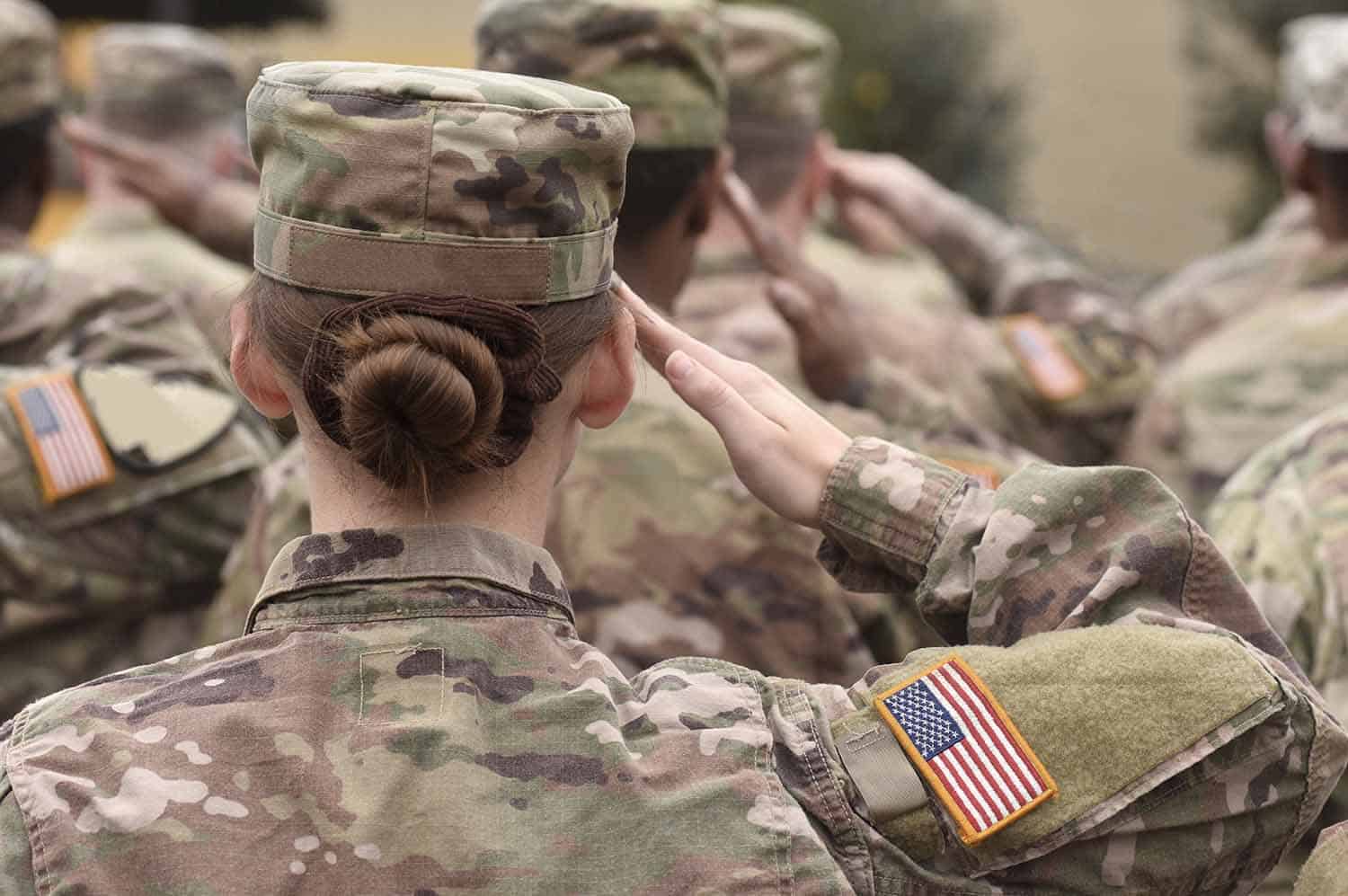Abortion care access is essential to support military personnel and their families
“Women in the military shouldn’t have to worry about whether or not they have access to healthcare depending on where they get stationed or deployed. Nor should any service members’ family.” Kim, former U.S. Army officer & women veterans’ activist
The United States military is one of the largest employers in the world, with over 1.3 million active-duty personnel and millions more veterans and their families. It is important that military personnel, who have bravely served the country, have access to comprehensive healthcare, including abortion care, regardless of where they are stationed or deployed. This is especially crucial given the barriers to accessing abortion care that military personnel often face due to restrictive policies on abortion funding.
Tricare, the military health insurance program, currently does not cover all abortions, and in cases where the pregnancy poses a risk to the health or life of the pregnant person, a physician must certify that an abortion is necessary. This policy undermines the reproductive rights and privacy of military personnel and puts their health and well-being at risk. Furthermore, military personnel and their families often face unique challenges when it comes to accessing healthcare services, including abortion care, due to deployments, relocations, and other military obligations that can make it difficult to access healthcare services in a timely manner.
One WRRAP patient, a military member, stated that she cannot afford the out-of-pocket cost of OVER $2000 for an abortion, and her insurance does not cover the procedure. She cannot afford a child either and only has $300 to contribute towards the procedure. This situation highlights the importance of how of providing financial assistance to cover the costs of abortion care — a service that Women’s Reproductive Rights Assistance Project (WRRAP), the largest national independent abortion fund is increasingly called to provide for military members from coast to coast.
Abortion Care in the Military
Abortion is not a political issue, it is a human issue. The right to access safe and legal abortion is essential for military members and their families to have control over their own bodies and their own futures. It is time to stop attacking a person’s reproductive rights and start supporting them.
With the overturning of Roe v. Wade by the Supreme Court last year, the barriers to accessing abortion care are only exacerbated for military personnel who are stationed in states with restrictive abortion laws.
Kim, a former US Army officer who served for four years, expressed concerns that “Military healthcare providers have never been able to provide abortion care, except for the life of the mother, rape, or incest. This means service members have to take leave, seek a provider off base, and pay out-of-pocket. Now, in the wake of the Dobbs decision, if they are stationed in a state that has restricted abortion access, they must take an even longer leave, scramble to find a provider, and get approval to have travel paid for to a region where abortion is legal in order to receive care. Not to mention potentially having to disclose to their chain of command that they need an abortion in order to get their leave request granted.”
It is essential that we prioritize healthcare, including the right to access safe and legal abortion, for military personnel who have sacrificed so much for the country.
It is unacceptable that women who have bravely served our country cannot access the healthcare they need. We cannot stand idly by while the women who have put their lives on the line for our freedom are denied the freedom to make choices about their own bodies.
On this Memorial Day, as we honor and remember the sacrifices made by military personnel who have served our country, let us also reflect on the ways in which we can support and care for our service members and their families. It is time to end the stigma and shame around abortion and start supporting individuals in making their own decisions about their bodies and their futures.
Written by:
Sylvia Ghazarian, Executive Director of WRRAP
OpEd first appeared in Pennlive.com
Sylvia Ghazarian
Sylvia Ghazarian is the Executive Director of WRRAP. She leads WRRAP to successfully achieve its mission — ensuring that financially-disadvantaged individuals of all ages, ethnicities, cultural backgrounds, gender identities, and sexual orientations can access abortion care and emergency contraception. A dedicated community activist and leader, Sylvia has been appointed by the Mayor of Los Angeles for over 12 years to chair the Commission on the Status of Women (COSW), investigating and advocating at a policy level on issues related to healthcare, poverty, domestic and sexual violence, rape, human trafficking, homelessness, data collection, child care and early development, and mental health.






